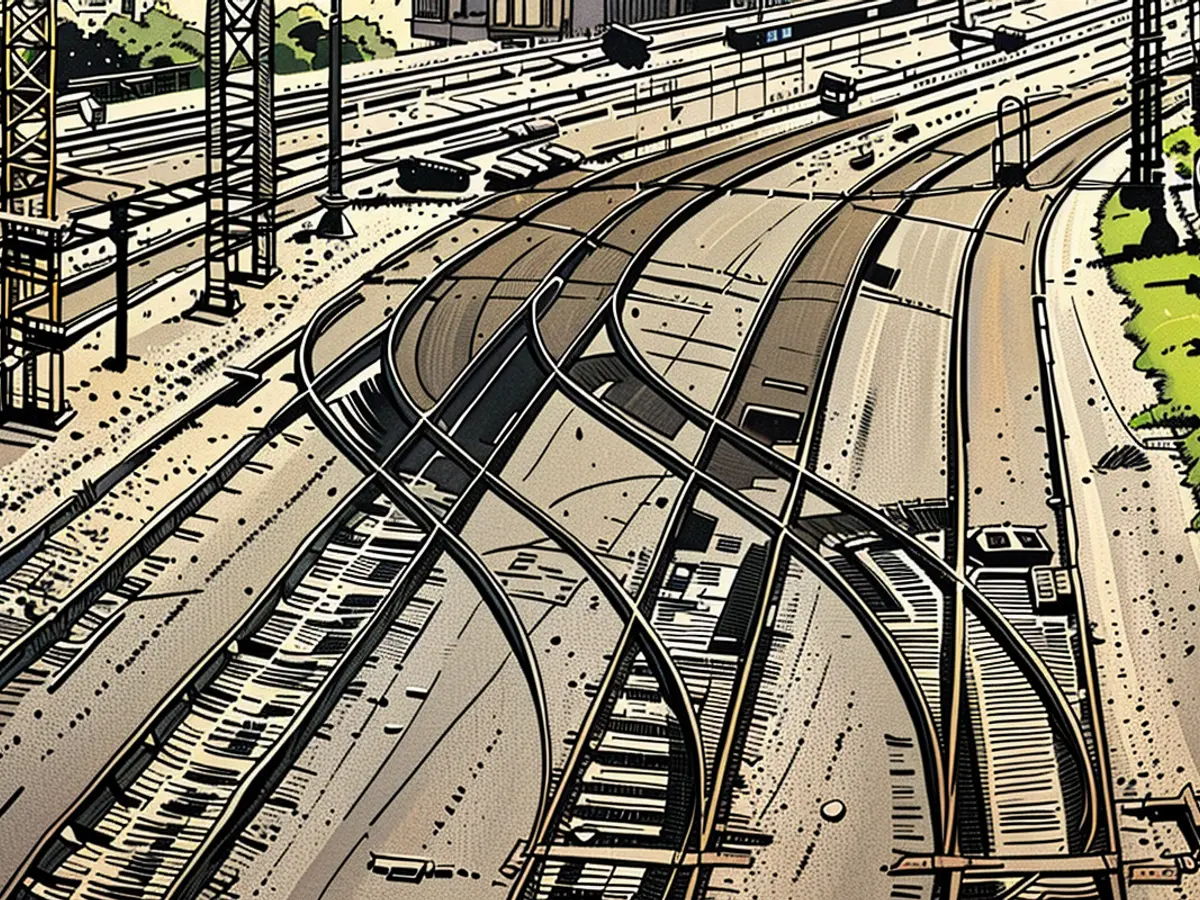Trade union sharply criticizes possible cuts at Deutsche Bahn
The Traffic Ministry plans to only allocate two-thirds of the funds for rail track maintenance. In addition, there is a threat of the shutdown of several long-distance rail tracks, particularly in the East. Martin Burkert, the head of the railway union EVG, raised serious objections.
Martin Burkert, the head of the railway union EVG, sharply criticized the transport policy of the federal government in light of possible cuts to long-distance rail services of Deutsche Bahn. The government is "continually cutting funds for the railways," Burkert complained. He warned that reports of possible discontinuations of long-distance rail services "are social powder kegs, especially in the East."
The current discussion about the transport budget 2025 shows that, according to plans by the Transport Ministry, the road will continue to be favored over the railways. In fact, a billion euros intended for rail track maintenance is to be diverted to the autobahn. "This budgetary folly mocks any description," Burkert said.
Despite Transport Minister Volker Wissing and other traffic light politicians repeatedly emphasizing the importance of the railways, they have promised less than 30 billion euros for the rail infrastructure renovation instead of the agreed 45 billion euros, according to Burkert. "Anyone who deviates from the agreed-upon renovation and expansion plan is committing railway robbery, undermining the future viability of the railway, missing climate targets, and damaging Germany's industrial location."
Discontinuation of long-distance rail services, particularly in the East
The political spending pressure is already noticeable and "will further tear apart our country," Burkert continued. The report by "Der Spiegel" on Wednesday, which suggested that the railway might consider discontinuing some Intercity connections with a focus in the East, is "social powder keg material." The region is already disadvantaged in terms of its connection to the long-distance rail network.
Responsible for this is a policy that artificially increases rail track fees through astronomical tolls," the union chief criticized. "Anyone who wants long-distance rail for everyone must ensure its financing. The owner is responsible here."
The Deutsche Bahn rejected the Spiegel report, which named several long-distance rail services threatened with discontinuation. However, there are serious financial bottlenecks, and the rail service offer will be reviewed, explained Fernverkehrsvorstand Michael Peterson. According to the railway company, a "drastic increase" in track tolls is in the works.
The Transport Ministry referred to a regulation introduced under pressure from the states a few years ago. According to this regulation, track fees in local transport are capped, and cost increases must be shifted to long-distance and freight transport. "In the short term," the Ministry stated, "it is supporting a state subsidy for track fees." However, this system is not sustainable, and it needs to be revised.
- Volker Wissing, as part of the Traffic light coalition, is facing criticism from Martin Burkert, the head of the railway union EVG, for the budget policy that favors roads over railways, potentially leading to discontinuation of long-distance rail services, particularly in the East.
- The discontinuation of long-distance rail services, especially in the East, is seen by Martin Burkert as a "social powder keg" due to the region's existing disadvantages in terms of its connection to the long-distance rail network.
- German Railways (Deutsche Bahn) acknowledged financial bottlenecks, but rejected the suggestion of discontinuing several long-distance rail services, stating that a "drastic increase" in track tolls is in the works.








